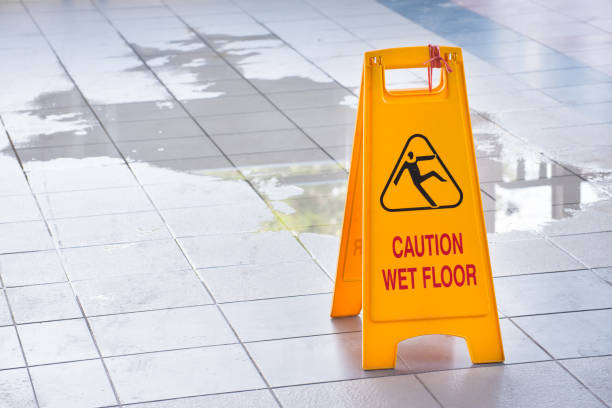
Ensuring slip resistance is crucial for maintaining a safe environment, both in commercial and residential spaces. Health and safety executives are particularly concerned with the risk of slips and falls, and it's essential for designers and specifiers to take this issue seriously.
If you're considering using porcelain tiles, you may wonder whether they're suitable for wet weather and whether they become too slippery when it rains. Additionally, you may be curious about what makes porcelain tiles slippery and which slip resistance factor is recommended,etc. Sunvin is here to help answer these questions and provide expert guidance.
Slips and falls on slippery tiles can cause serious injuries and have been known to occur in a wide variety of settings, including:
Homes:
Slippery tiles in bathrooms, kitchens, or other areas can be a common cause of slips and falls in the home, particularly among older adults or those with mobility issues.
To invest a beautiful and functional bathroom that minimizes the risk of accidents ,check these 10 Design Ideas of Non Slip Ceramic Tile For Bathroom.
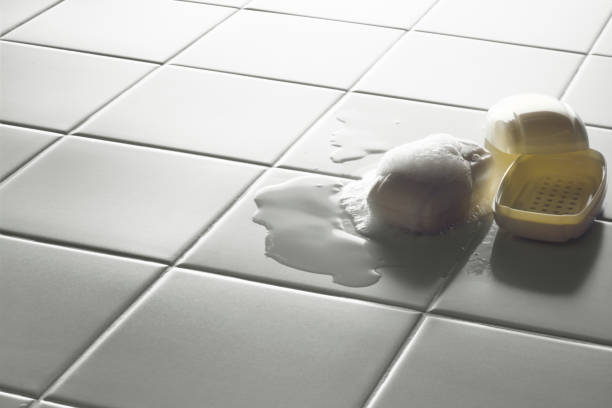
Public buildings:
Slippery tiles in public buildings such as shopping malls, airports, or hospitals can be a significant hazard, particularly in areas that are frequently wet or where spills are common.
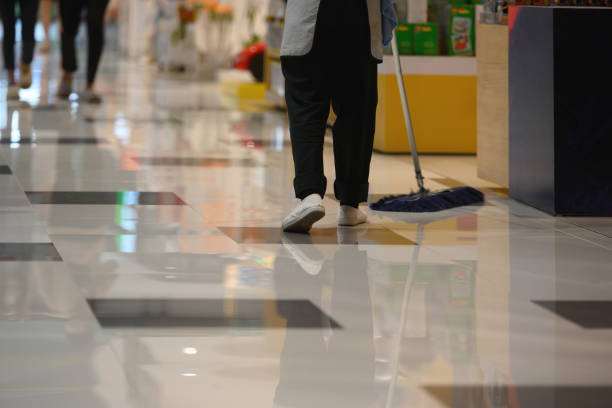
Commercial kitchens:
The floors in commercial kitchens are often wet and greasy, creating a high risk of slips and falls. Anti-slip tiles are essential in these environments to help prevent accidents and ensure the safety of staff.
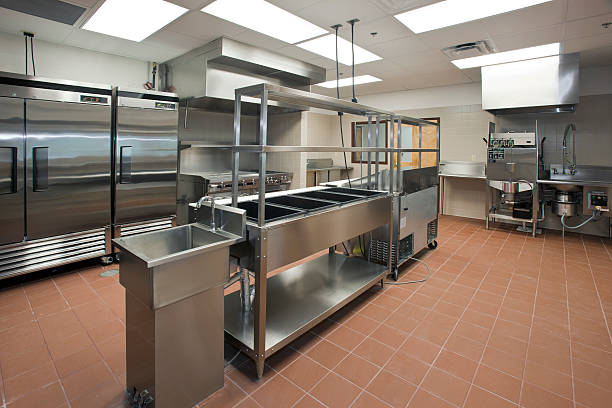
Swimming pool areas:
Slippery tiles around swimming pools are a common cause of accidents, particularly among children and older adults who may have difficulty maintaining their balance on wet surfaces.
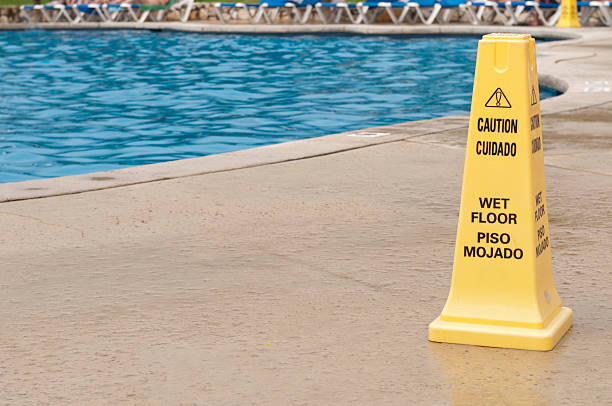
According to data from the National Safety Council, falls are one of the leading causes of injury-related deaths in the United States, with more than 34,000 deaths reported each year. In addition, slips and falls are responsible for millions of non-fatal injuries each year, many of which result in hospitalization, lost work time, or other serious consequences.
Research has shown that the use of anti-slip tiles can significantly reduce the risk of slips and falls, particularly in areas that are frequently wet or where spills are common. In fact, some studies have found that the use of anti-slip tiles can reduce the risk of slips and falls by up to 90% in certain settings.
Slipping happens when surfaces lack friction to halt kinetic energy.
All surfaces have some degree of slip risk. However, rough and coarse textures provide better traction than smooth surfaces, which are more slippery.
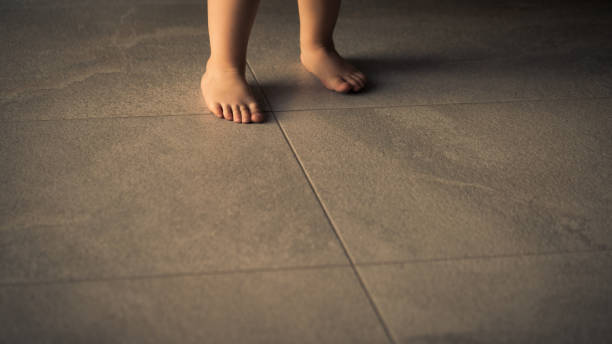
Beyond surface texture, other factors also play a role in slipperiness. For example, cleaning products can leave a smooth, slippery residue, making a previously safe floor hazardous. Likewise, soft footwear like socks can reduce friction and increase slip risk.
In addition, the presence of water, oil, and other contaminants significantly increases slipperiness, posing a risk for anyone walking on such surfaces.
In outdoor areas, with the build-up of algae, moss and grime, patios and paths can become dangerous unless you clean them regularly.
Slip resistance is measured using a variety of methods, with the most common being the pendulum test, the coefficient of friction test, and the ramp test.
Pendulum Test:
The pendulum test is the most commonly used method for measuring slip resistance of tiles. It involves a pendulum arm with a rubber slider, which is swung over the surface of the tile at a constant speed. The resistance of the tile to the movement of the slider is measured by the friction generated between the rubber slider and the tile surface. The results are expressed as a pendulum test value (PTV), which ranges from 0 to 100. The higher the PTV, the more slip-resistant the tile is.
Generally, a PTV of 36 or higher is considered to provide good slip resistance and is recommended for areas where slip resistance is a concern, such as in wet areas like bathrooms or swimming pool decks. It is important to note that different countries may have different standards and regulations regarding slip resistance, so it is best to consult with local authorities and industry experts for specific recommendations.
Coefficient of Friction Test:
The coefficient of friction test measures the frictional force between the tile surface and a sliding object, typically a sled with a known weight. The test is performed by sliding the sled across the tile surface at a constant speed, and the resistance to movement is measured. The results are expressed as a coefficient of friction (COF), which is a ratio of the frictional force to the weight of the sled. The higher the COF, the more slip-resistant the tile is.
A COF value of 0.6 or above is generally considered to be slip-resistant and suitable for areas with high slip potential, according to industry standards and safety regulations.
Ramp Test:
The ramp test is a method for measuring the slip resistance of tiles in wet conditions. The test involves a ramp covered with the tile being tested, which is gradually tilted until the tile surface becomes slippery enough for a test subject to lose their footing. The angle at which this occurs is measured and used to determine the anti slip rating of the tiles.
In general, tiles with a rating of R9 or higher are considered to have good slip resistance and are suitable for use in areas that may become wet or slippery, such as bathrooms, swimming pool areas, and commercial kitchens.
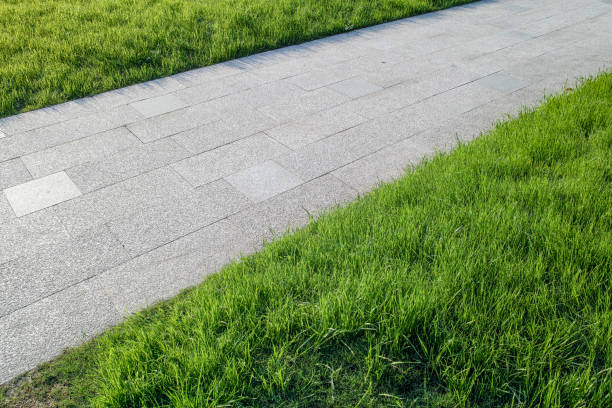
When it comes to surfaces that may become wet, natural stone can be an excellent option. However, it's important to note that different types of stones and finishes offer varying levels of slip resistance. If slip resistance is a concern, it may be better to choose porcelain tiles instead of natural stone.
After all, porcelain tiles are non-porous, which means they do not absorb moisture, preventing the growth of algae or moss. This is an important factor in reducing the risk of slipperiness, making porcelain tiles a safer option for wet areas.
Porcelain tiles are highly slip-resistant due to their unique manufacturing process, which results in a finished tile that is less porous than other flooring products. This makes it easier to add a special non-slip surface to them, which is textured to prevent slippage.
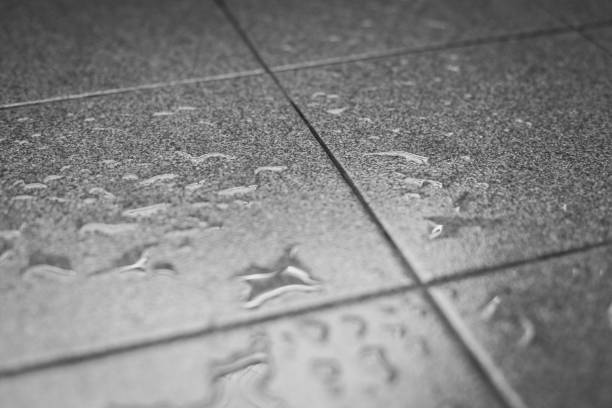
Additionally, outdoor porcelain tiles have low porosity, meaning they absorb significantly less moisture and instead stay on the surface, where they evaporate quickly. This reduces the likelihood of slips and accidents. In contrast, natural stone tiles with high water content can increase the risk of slips.
Therefore, if you're seeking slip-resistant outdoor tiles, porcelain tiles are the perfect choice.
Check the COF ratings:
COF or coefficient of friction is an objective standard used to measure the slip resistance of an item. You can search for COF ratings published by tile manufacturers and retailers.
Look for higher COF slip resistance numbers:
Higher COF slip resistance numbers indicate a tile's greater slip resistance.
Consider the surface condition:
Dry, clean items that move against each other are typically COF-rated from 0.3 to 0.6. Tiles with a COF rating of zero have no friction, while slippery tiles can be rated as low as COF 0.04.
Opt for high COF-rated tiles:
Terracotta tile, quarry tile, and brick have high COF ratings, making them very slip-resistant.
Avoid low COF-rated tiles:
Honed natural stone, which is as slippery as glass, is one of the lowest COF-rated floor tiles. Avoid tiles with low COF ratings to ensure maximum slip resistance.
Blog Series:
Porcelain Anti Slip Floor Tiles China
Anti Slip Porcelain Garden Tiles
Favorable Anti Slip Floor Tiles Price At Sunvin Ceramics
Anti Slip Floor Tiles for Wet Rooms
Anti Slip Ceramic Floor Tiles Commercial
Non Slip Floor Tiles For Living Room
Non Slip Floor Tiles For Commercial Kitchen
Anti Slip Floor Tiles For Kitchen
Anti Slip Floor Tiles Bathroom
When it comes to slip-resistant tiles, it's important to note that no flooring product can claim to be completely slip-resistant. However, there are many tiles available that offer an exceptionally high level of slip resistance, making them perfect for use in outdoor environments, especially in wet weather conditions.
Our outdoor tiles come in a wide range of finishes and styles, making them suitable for use in any outdoor space, regardless of how wet it may be. Textured grip and fine textures on our finished tiles provide ample traction, making them suitable for various areas of the garden, including poolside and patio.
We are completely confident that you will find something you like and something that will suit your outdoor space! Click the button below to browse our collection of slip-resistant porcelain tiles.You are also welcomed to contact us with any questions or inquiries.